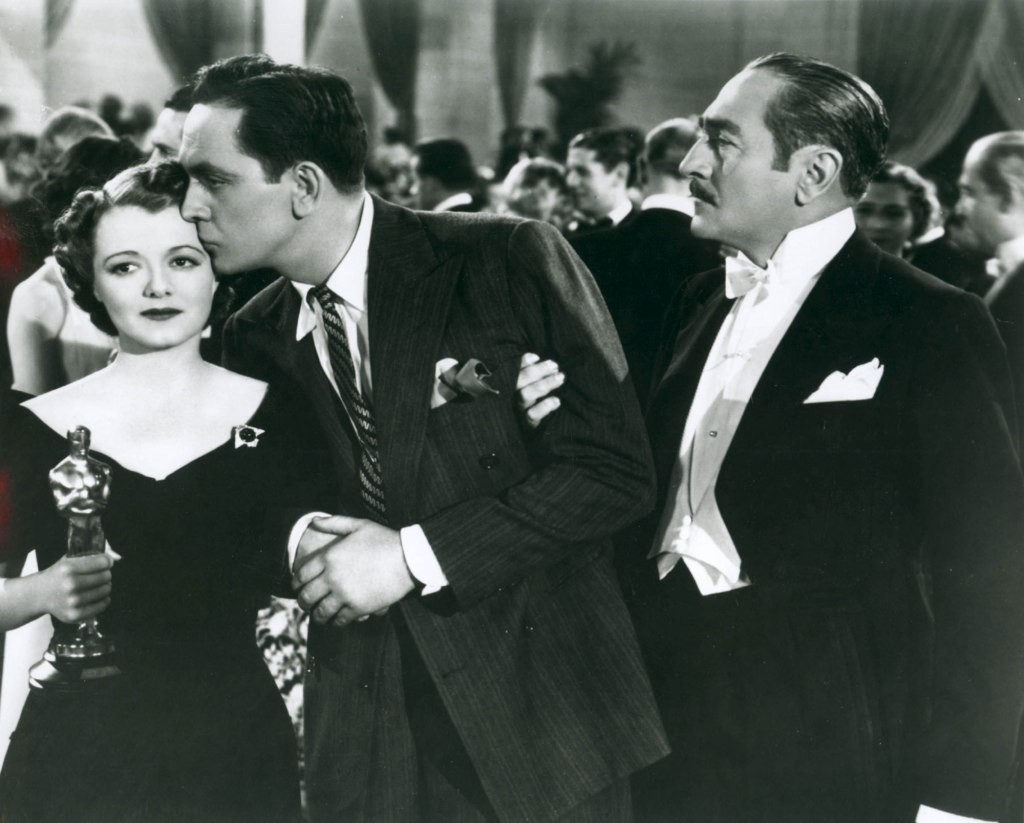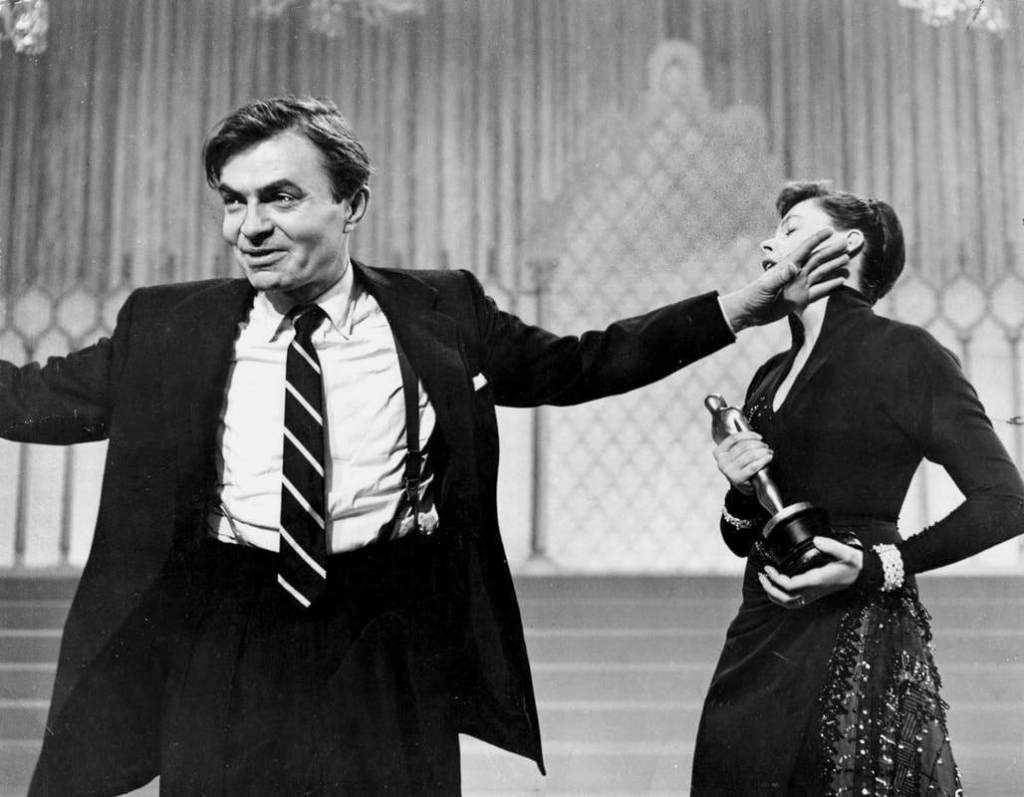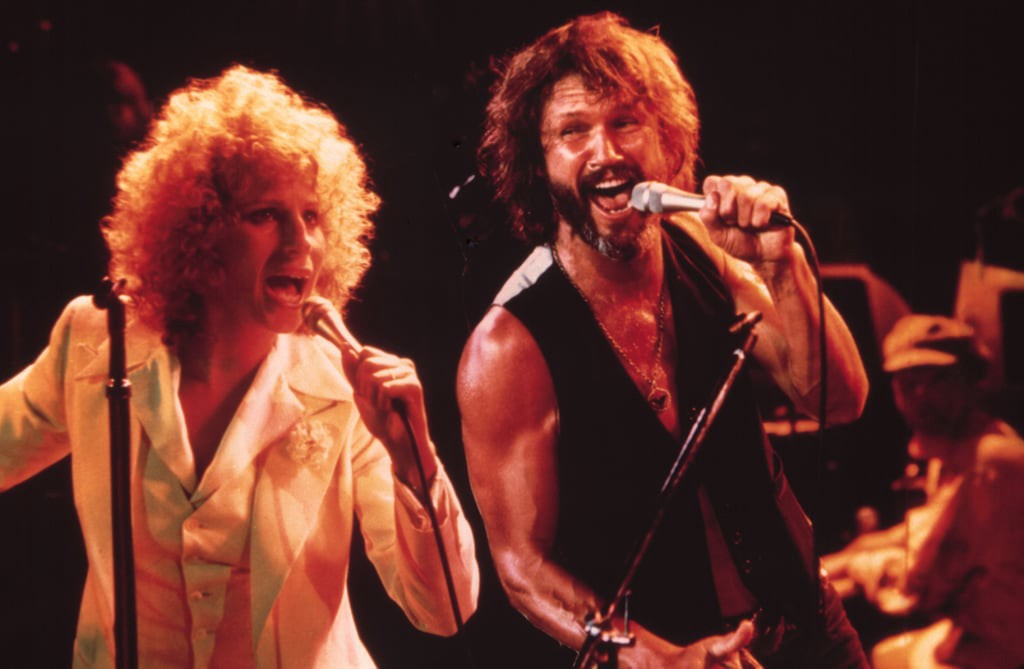The 1976 film is awful, but compelling cases can be made for the supremacy of the other three
 Bradley Cooper, who also directed, and Lady Gaga star in the 2018 version of ?A Star Is Born,? the fourth version of one of Hollywood?s favorite stories. Photo courtesy of Warner Bros. Pictures
Bradley Cooper, who also directed, and Lady Gaga star in the 2018 version of ?A Star Is Born,? the fourth version of one of Hollywood?s favorite stories. Photo courtesy of Warner Bros. Pictures
By Todd Hill
Despite now four distinct iterations, ?A Star Is Born,? a film with which Hollywood is clearly in love, remains an emphatically old-fashioned story. Maybe that?s part of its charm. It?s also something of a concern.
For those who haven?t seen any of the ?Star Is Born? movies but would like to (I recommend it), or who caught perhaps one of the versions several years ago and don?t remember much of the experience, here?s a brief synopsis:
A young woman, a supposed ingenue (although actual ingenues have never been cast in the role), has an unrealized talent ? for acting in the 1937 film, for singing and acting in the 1954 version, for simply singing in the 1976 and 2018 takes. She desperately wants to be a star, or is at least open to the possibility, but requires a man to get her there. He?s not just any man, however, but a major celebrity, again either an actor or a musician himself. By opening doors for her that she may not have been able to open herself, he pushes her into the spotlight, sometimes literally.
But here?s the rub ? he?s a drunk, or a drunk/drug addict. And as far as his own stardom is concerned, he?s on his way down. As her ascent picks up momentum, his decline accelerates. By now a married couple, the two confront tensions in their relationship borne of their newfound ranks in the celebrity firmament that threaten to tear them apart. And here?s the place where I warn off any readers who don?t want to know any more about the plot.
For the woman (named Esther Blodgett/Vicki Lester, Esther Hoffman Howard or Ally Campana-Maine, depending on the film) to reach her full artistic potential, the man (Norman Maine, John Norman Howard or Jackson Maine) has to essentially sacrifice himself. This becomes clear when she reassures him she will step back from her thriving career to help him get the better of his addiction. After gazing at his love one last time ? ?Do you mind if I take just one more look?? or variations thereof is the movie?s signature line ? he kills himself, either by drowning, hanging, or in one case, a random vehicular accident that doesn?t appear intentional. Esther/Vicki/Ally, after a suitable period of mourning, returns to the spotlight, stronger than before, although it can be argued that it was a man who made all of this possible.
That speaks to the concern about the storyline of ?A Star Is Born? that I mentioned before, one that only the 2018 film addresses, and not in a terribly constructive way. It?s also not a concern I wish to dwell on, for ?A Star Is Born? remains a fine Hollywood yarn that has delivered nearly every time it?s been told. The Academy Awards that have been lavished on this title over the years are a testament to the fact that ?A Star Is Born? is far more worthy of praise than criticism.
I recently watched all four ?ASIB? movies in rapid succession, a curious exercise, with the intent of ranking them in terms of quality, only to conclude that that would be rather pointless. The 1976 version is the worst of the bunch, by far. It?s awful. But a case could be made to rank any of the other three as either third best, second best or the best of them all. They each possess at least something to recommend them, and each has serious flaws.
So without further ado, here?s my take on all of the ?Star Is Born? motion pictures, in the context of how they compare with the others, in chronological order:
 Janet Gaynor, grasping her character?s Oscar, appears with, from left, Fredric March and Adolphe Menjou in the 1937 film ?A Star Is Born.? Photo courtesy of United Artists
Janet Gaynor, grasping her character?s Oscar, appears with, from left, Fredric March and Adolphe Menjou in the 1937 film ?A Star Is Born.? Photo courtesy of United Artists
?A Star Is Born,? 1937, starring Janet Gaynor and Fredric March, directed by William A. Wellman.
Don?t be surprised when a snob points out to you that there have actually been five of these films, not four. The precursor to this release, and arguably the prototype, was 1932?s ?What Price Hollywood?,? with which this film shares many similarities. And that?s all well and good, but only four motion pictures titled ?A Star Is Born? have been made.
Wide-eyed and diminutive, Janet Gaynor comes closest of all who have been cast in the role to the ideal of the ingenue, who leaves her rural home somewhere in the middle of the country for fame and fortune in Hollywood, or failing that, a room in a boarding house and a job waitressing. That?s how her Esther Blodgett meets Fredric March?s Norman Maine, who?s instantly smitten and gets her a screen test.
As the film progresses, March?s character isn?t so much broken as pathetic. And while Gaynor?s transition to celebrity is properly paced, at no point is she seen practicing her newfound craft of acting. Frankly, the movie is a bit of a snooze until it reaches the triple climax at the end.
When Gaynor?s Vicki Lester (her new movie star moniker) promises to quit show business to be with Maine, the pronouncement packs a genuine punch, which is surpassed just minutes later as Maine walks out of their beachfront villa and into the ocean, never to return. Emotions reach their appropriate apex in the film?s final scene as reporters ask Vicki Lester to approach the microphone and say a few words, and she does so with the bold declaration, ?This is Mrs. Norman Maine!? The moment leaves a legitimate lump in the throat. None of the other three ?Star Is Born? flicks finishes up nearly this well.
The film received one Academy Award, for Best Writing (Original Story), on seven nominations, which included Outstanding Production, the equivalent of today?s Best Picture prize. A special Oscar was also awarded to W. Howard Greene for the film?s muddy color photography, barely passable by today?s standards.
 James Mason, as a drunken Norman Maine, disrupts the Oscar acceptance speech of Vicki Lester, played by Judy Garland, in the 1954 version of ?A Star Is Born.? Photo courtesy of Warner Bros. Pictures
James Mason, as a drunken Norman Maine, disrupts the Oscar acceptance speech of Vicki Lester, played by Judy Garland, in the 1954 version of ?A Star Is Born.? Photo courtesy of Warner Bros. Pictures
?A Star Is Born,? 1954, starring Judy Garland and James Mason, directed by George Cukor.
Although Hollywood had changed a lot in the 17 years since the first ?Star is Born? was released, the 1954 version is a determinedly faithful remake of the 1937 film, practically scene for scene. But significant embellishments ultimately come to define it.
Today?s restored version of the film is nearly three hours long, due to several extended musical production sequences. This was a nod to both the motion picture trend of the times and the fact that Judy Garland was involved; no filmmaker with any sense would let a talent like that go to waste.
That having been said, with one significant exception the musical numbers are overlong and fairly bizarre, and Garland, beset by off-screen travails by this point in her career, doesn?t always look her best here.
The 1954 film is by far the best acted of them all. James Mason, who was a natural playing corrupt and/or broken men, gives Norman Maine some intriguing dimensions that went unexplored in the original effort. While Garland is given a handful of scenes in which to emote to excess, she was never better than in an early scene in which she sings ?The Man That Got Away? in a hole-in-the-wall club very early in the morning. It?s simply sublime. No wonder Norman was smitten.
Despite six Academy Award nominations, the picture came up empty. Best Actress and Actor nominees Garland and Mason lost to Grace Kelly (?The Country Girl?) and Marlon Brando (?On The Waterfront?), respectively, while ?The Man That Got Away,? nominated for Best Original Song, lost to ?Three Coins in the Fountain.?
 Barbra Streisand and Kris Kristofferson, as Esther Hoffman Howard and John Norman Howard, share the stage in 1976?s ?A Star Is Born.? Photo courtesy of Warner Bros. Pictures
Barbra Streisand and Kris Kristofferson, as Esther Hoffman Howard and John Norman Howard, share the stage in 1976?s ?A Star Is Born.? Photo courtesy of Warner Bros. Pictures
?A Star is Born,? 1976, starring Barbra Streisand and Kris Kristofferson, directed by Frank Pierson.
Well, it was the ?70?s. ? True enough, but that?s no excuse for this heated mess of a movie, although its makers do at least deserve credit for substantially rethinking the basics of what was by then an old Hollywood chestnut.
The setting is shifted from movies to music, with Kris Kristofferson portraying a scrungy Neil Young type, while Barbra Streisand appears to be playing some version of herself, at least musically. The rethinking makes some sense, as popular music was probably never a greater influence on American culture than in the mid-1970?s.
Alas, that doesn?t change the fact that virtually all the music in this film is pretty horrible, with the notable exception of Streisand?s ?Evergreen,? one of the loveliest ballads of the past 50 years. Accordingly, it received the Academy Award for Best Original Song, the film?s only Oscar win on, somehow, four nominations.
Regrettably, in moving this ?Star Is Born? from movies to music, many of the story?s more critical plot points got lost as well, with the emphasis shifted instead to Robert Altman-esque scenes of noise and confusion, and Streisand?s seemingly endless cavalcade of color-coordinated headscarves (Babs? boyfriend at the time, Jon Peters, was the film?s producer). But seriously, gone are so many of the main characters? motivations that if you haven?t seen either of the earlier ?Star Is Born? efforts before this one you?d have to wonder what all the fuss is about. If you have, this movie makes an even worse impression.
It?s in the casting, however, where this film feels most off key ? or to be more specific, finding someone decent to star opposite Streisand (who?s fine), preferably with an eye toward chemistry. Kristofferson does little more than mumble through the entire film (even when he?s singing), although it should be noted that he has his shirt either unbuttoned or entirely off in virtually every scene, if that?s important to you.
It could?ve been worse. Also considered for the role were Elvis Presley (toward the end of his life, drugged up and bloated, so already in character), Mick Jagger (would?ve matched up well with, I don?t know, Grace Jones?), Bob Dylan (would?ve matched up well with no one I can imagine), and Neil Diamond, who came from the same part of Brooklyn as Streisand and was probably ideal.
 Bradley Cooper and Lady Gaga work on a song in the 2018 remake of ?A Star Is Born.? Photo courtesy of Warner Bros. Pictures
Bradley Cooper and Lady Gaga work on a song in the 2018 remake of ?A Star Is Born.? Photo courtesy of Warner Bros. Pictures
?A Star Is Born,? 2018, starring Lady Gaga and Bradley Cooper, directed by Bradley Cooper.
For his directorial debut, Bradley Cooper chose to revisit ? and substantially improve ? the 1976 ?Star Is Born,? an admittedly easy task, although it can be argued that pop music no longer has anything close to the cachet it did 44 years ago. All the same, musically this is the strongest of the four films. Raw talent, on the part of both Lady Gaga and Cooper, isn?t just on display, but celebrated.
The movie begins with immense promise, as Jackson Maine, Cooper?s boozy country rocker, encounters Ally, Lady Gaga?s character, performing at a high-energy drag bar. Their chemistry is immediate and apparent (even though neither of them graces the film with an exceptional performance), and the scenes they share exploring after-hours Los Angeles are both natural and wonderfully electric, probably the best any of these four films has put forth.
The dilemma this presents, of course, is essentially inevitable. The movie peaks far too early. And while everyone involved with this production deserves praise for making Ally a strong character from the get-go, removing jealousy from the retinue of Maine?s motivations renders him a bit of a wet rag.
In addition, while this ?Star Is Born? is the first to invent a back story to help explain Maine?s shortcomings, the murky father issues it dives into aren?t terribly interesting. And in contrast to 1937 and 1954 (the less said about the 1976 film the better), addiction today is more commonly seen as a disease to be treated, not a moral failing. That?s for the better, of course, but it unfortunately waters down this movie.
The film was nominated for a whopping eight Academy Awards, including Best Picture, indicative of the industry?s love for the story ? or perhaps not, since it won only one Oscar, for Best Original Song (?Shallow,? deserved). It also should have won Best Picture, considering that it lost to, uh, ?Green Book.?
But revenge can indeed be sweet. It?s hard to imagine a mediocre movie like ?Green Books? having legs going forward. The fourth ?Star Is Born? clearly will. Hollywood loves telling stories about itself, and this is the quintessential Hollywood story. It?s in good hands.
Todd Hill is a former journalist with 30 years of experience, much of it in film criticism, who misses neither journalism nor the film beat.


